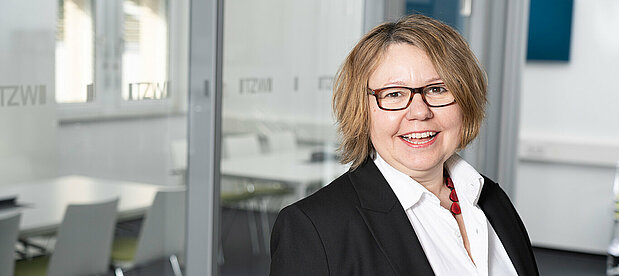As part of this project, a cascadable and universal UVC LED disinfection module was developed and constructed. Various materials and module components were tested for their suitability and optimised. The developed functional model forms the basis of the development of point-of-use water disinfection devices.
UVC LEDs present a promising alternative to conventional mercury vapour lamps, which have been used to date as the only UV radiation sources for drinking water treatment.
Based on the low but constantly increasing performance of available UVC LEDs, the development is initially limited to disinfection modules for devices with low flow quantities (point-of-use device, PoU). These systems are used directly at the extraction point, for example in private households, hospitals, public facilities, airplanes, trains and ships.
The aim of this project is to develop the foundations for the efficient use of LEDs for the most diverse applications in the field of water, air and surface disinfection. This includes investigating the effectiveness of the disinfection at different wavelengths and combinations, the optimum LED arrangement in the array, and creating innovative array geometries to achieve maximum disinfection efficiency.
In the sub-project, “Microbiological and technical characterisation of UV LED disinfection modules”, TZW is working on the following topics:
- Development of LED bench scale irradiation modules using computer simulations
- Spectral and technical characterisation of the modules
- Inactivation of microorganisms at different wavelengths and wavelength combinations
- Construction of measurement benches to characterise LEDs
- Investigation of LED characteristics such as the emission behaviour, directivity and ageing
- Biological and technical investigation of an LED reactor developed as part of the project
Publications
T. Schwarzenberger, A. Neuner, J. Glaab, J. Eggers, “UVC LED: Bench Scale Irradiation of Microorganisms with Various Wavelengths”. IUVA World Congress, Vancouver, February 2016.
T. Schwarzenberger, “UV Desinfektion: Betrieb und zukünftige Entwicklungen in der UV-Technologie” [UV disinfection: operation and future developments in UV technology]. TZW colloquium, Karlsruhe, November 2016.
T. Schwarzenberger, A. Neuner, T. Westerhoff, J. Eggers, “Development of UVC LED Modules for Bench
Scale Irradiation Experiments”. IUVA World Congress, Dubrovnik, September 2017
T. Schwarzenberger, “Alternative UV radiation sources for water treatment”. Innovation forum Baden, September 2017.
J. Eggers, “UV Light for Water Treatment: Applications and Challenges”. Empowering Photonics Regional Event, Berlin, October 2017.
J. Eggers, “UV LED Systems: Reflections on validation testing”. ICULTA Conference, Berlin, April 2018.
K.-H. Schön, T. Schwarzenberger, J. Eggers, “Why and how to characterize LEDs? Part 1: Test protocols, aging and temperature dependency”. ICULTA Conference, Berlin, April 2018.
T. Schwarzenberger, K.-H. Schön, J. Eggers, “Why and how to characterize UVC LED? Part 2: Measurement of directivity and UVC output”. ICULTA Conference, Berlin, April 2018.
J. Eggers, T. Schwarzenberger, K.-H. Schön, “Quantensprung durch UV-LED-Technologie in der Trinkwasserdesinfektion?” [Quantum leap by using UV LED technology in drinking water disinfection?]. 23rd TZW colloquium, Karlsruhe, December 2018.

![[Translate to English:] Prüfstelle-Produktprüfung_Teststand Test centre and product testing](/fileadmin/_processed_/0/9/csm_TZW-Karlsruhe_Pruefung_Geraete-Teststand_377188946c.jpg)

























